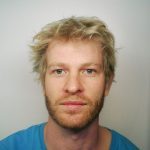Lien vers Pubmed [PMID] – 36730436
Lien vers HAL – hal-03991996
Lien DOI – 10.1371/journal.pcbi.1010088
PLoS Comput Biol 2023 Feb; 19(2): e1010088
Numerous models have been developed to account for the complex properties of the random walks of biomolecules. However, when analysing experimental data, conditions are rarely met to ensure model identification. The dynamics may simultaneously be influenced by spatial and temporal heterogeneities of the environment, out-of-equilibrium fluxes and conformal changes of the tracked molecules. Recorded trajectories are often too short to reliably discern such multi-scale dynamics, which precludes unambiguous assessment of the type of random walk and its parameters. Furthermore, the motion of biomolecules may not be well described by a single, canonical random walk model. Here, we develop a two-step statistical testing scheme for comparing biomolecule dynamics observed in different experimental conditions without having to identify or make strong prior assumptions about the model generating the recorded random walks. We first train a graph neural network to perform simulation-based inference and thus learn a rich summary statistics vector describing individual trajectories. We then compare trajectories obtained in different biological conditions using a non-parametric maximum mean discrepancy (MMD) statistical test on their so-obtained summary statistics. This procedure allows us to characterise sets of random walks regardless of their generating models, without resorting to model-specific physical quantities or estimators. We first validate the relevance of our approach on numerically simulated trajectories. This demonstrates both the statistical power of the MMD test and the descriptive power of the learnt summary statistics compared to estimates of physical quantities. We then illustrate the ability of our framework to detect changes in α-synuclein dynamics at synapses in cultured cortical neurons, in response to membrane depolarisation, and show that detected differences are largely driven by increased protein mobility in the depolarised state, in agreement with previous findings. The method provides a means of interpreting the differences it detects in terms of single trajectory characteristics. Finally, we emphasise the interest of performing various comparisons to probe the heterogeneity of experimentally acquired datasets at different levels of granularity (e.g., biological replicates, fields of view, and organelles).


